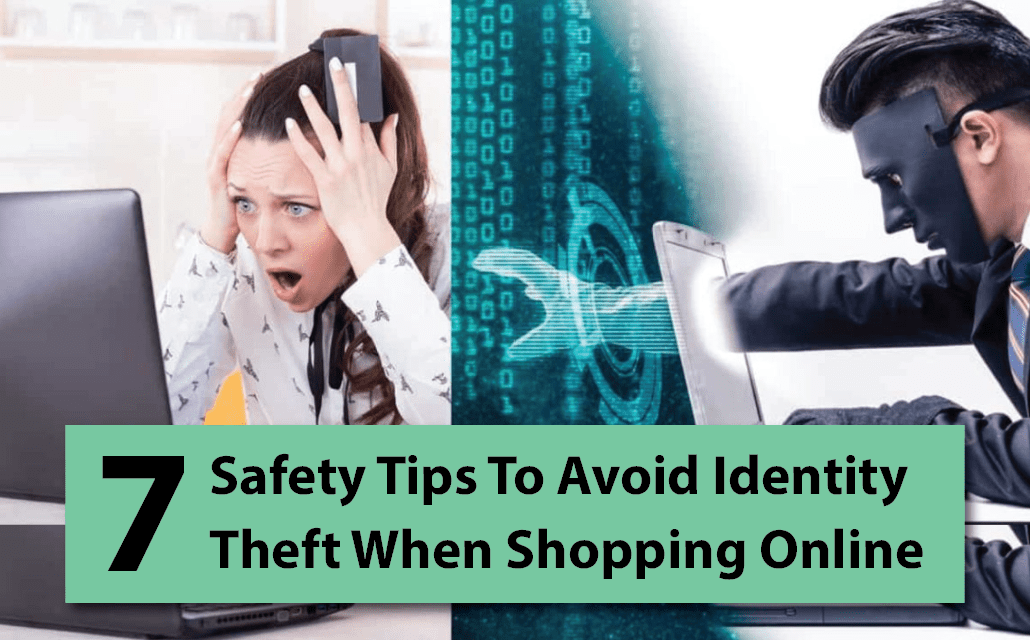Today’s advancement of technology enables us to shop online without feeling worry about the fuel consumption and finding a parking space. It is convenient and save us more time. All we have to do is just browsing online shopping websites or apps using our own laptop/desktop or even our smartphone. The best thing about online shopping is that we don’t have to dress up to go shopping. We can comfortably select the preferred item to purchase online anywhere and anytime. You just name it, clothes, beauty & personal care, furniture & appliances, food & drinks, toys and many more.
Nevertheless, despite the convenient benefits that we gain through online shopping, we still need to take precautions once we decide to opt for online shopping. For instance, our personal data and information are somehow being recorded and kept by the online retailers such as bank account and credit card numbers, home and work addresses and others. Without a proper security, our personal information might be at risk. We don’t want to get a bill on purchasing items that we didn’t actually buy.
According to CyberSecurity Malaysia (CSM), ‘Identity theft occurs when someone steals your personal information or possessions so they can use it for fraudulent transactions. Fraud impersonation, unauthorised transactions, data breach and account compromises are among the common ways fraudsters can steal your identity.’ This implies that if someone uses your identity to make purchases or transactions, this means that your identity has been stolen and this is known as identity theft.
Hence, if you don’t want cybercriminals to steal or exploit your personal information, let’s check out these safety tips so that we don’t fall prey to identity thieves.
1- Check the website security
Every online store or website should be fully secured. The trusted online stores should be accountable for having good security for their website and online customers. They need to regularly monitor their website efficiently. In whatever way, as a consumer you also need to confirm and check whether the selected website is safe for online shopping.
Therefore, how to check?
a) If the website is secure and has an updated security system, you will see a green button or padlock icon (locked padlock) next to the website address. Different web browsers will have different security icons/padlock symbols.
b) Double click the padlock icon and it will pop up the information that tells you that the website is secure. Therefore, your personal information such as phone number or credit card number will be kept confidential when it is sent to the site. However, most modern browsers will proactively alert you if you are visiting any insecure websites.
c) Do ensure that the website address should start with https:// in the URL. The letter ‘s’ after http stands for secure.
2- Identify the authentication of the online stores
As a consumer, you need to research the right place to shop online. For example, you can check the reviews of your selected online shop. Normally, if you do some analysis, it is easy to detect whether it is legit or illegitimate. Apart from that, Google also has opened up ‘Google Trusted Stores’ to give verification to the online stores. Some of the online stores will apply to this system so that they can earn more trust from the consumers. After the application, Google will put them under an observation period and online stores that get past the screening will earn a badge on their website as a proof that they are verified online stores authorised by Google.
3- Don’t shop via public network
Even though you can shop at any time of a day and anywhere, you may want to consider it again because there are places that are considered unsafe to shop online. There are many places that provide Wi-Fi networks such as restaurants and coffee shops. Wi-Fi is a public network and it is less protected so it is easy for the hackers to hack the network and gain the users information such as your password, websites you visit and account login. Plus, they can impersonate other people in which this is called spoofing. Your payment details and information will go directly to the hackers and they can simply manipulate your accounts. It is better for you to shop online at home or using your mobile data as it is a private network and more secure.
4- Be careful when you are doing internet transactions
Make sure you use strong passwords for any online accounts. After you have made an online transaction, do ensure that you clear the browser cache and cookies. On top of that, you also need to log out appropriately. It is advisable that you shouldn’t just close the browser without a proper logout process. Most importantly, you shouldn’t leave your laptop/computer unattended when you are doing an internet transaction or every time when you have an Internet banking session. This is to ensure that only you who did the transaction for your online shopping.
5- Do not respond to any unknown emails
If you receive any suspicious emails asking for your personal information, bank account or credit card number or even notifications on changing password of your online shopping accounts, just ignore it and don’t click on any strange links. The best solution is to directly contact the online store’s customer service to verify whether they sent it and this certainly will help you from becoming a victim of cyber criminals.
6- Check your account statements regularly
Checking your account statements frequently is a must do. The faster you are able to detect any fraudulent activities on your online accounts, the faster your card or bank issuer can put a stop to these deceitful activities. Thus, one of the ways to protect yourself from identity theft is to always check your financial statements.
7- Report to your financial institution or Cyber Security agency
If you find your personal information has been misused without your authorization, do not hesitate to contact your banks and Cyber Security Agency of Malaysia. They will assist you on the effective ways to solve this type of cybercrime such as on how to proceed with the credit freeze or extended fraud alert. Nevertheless, don’t forget to lodge a report at any police station for further investigation.


